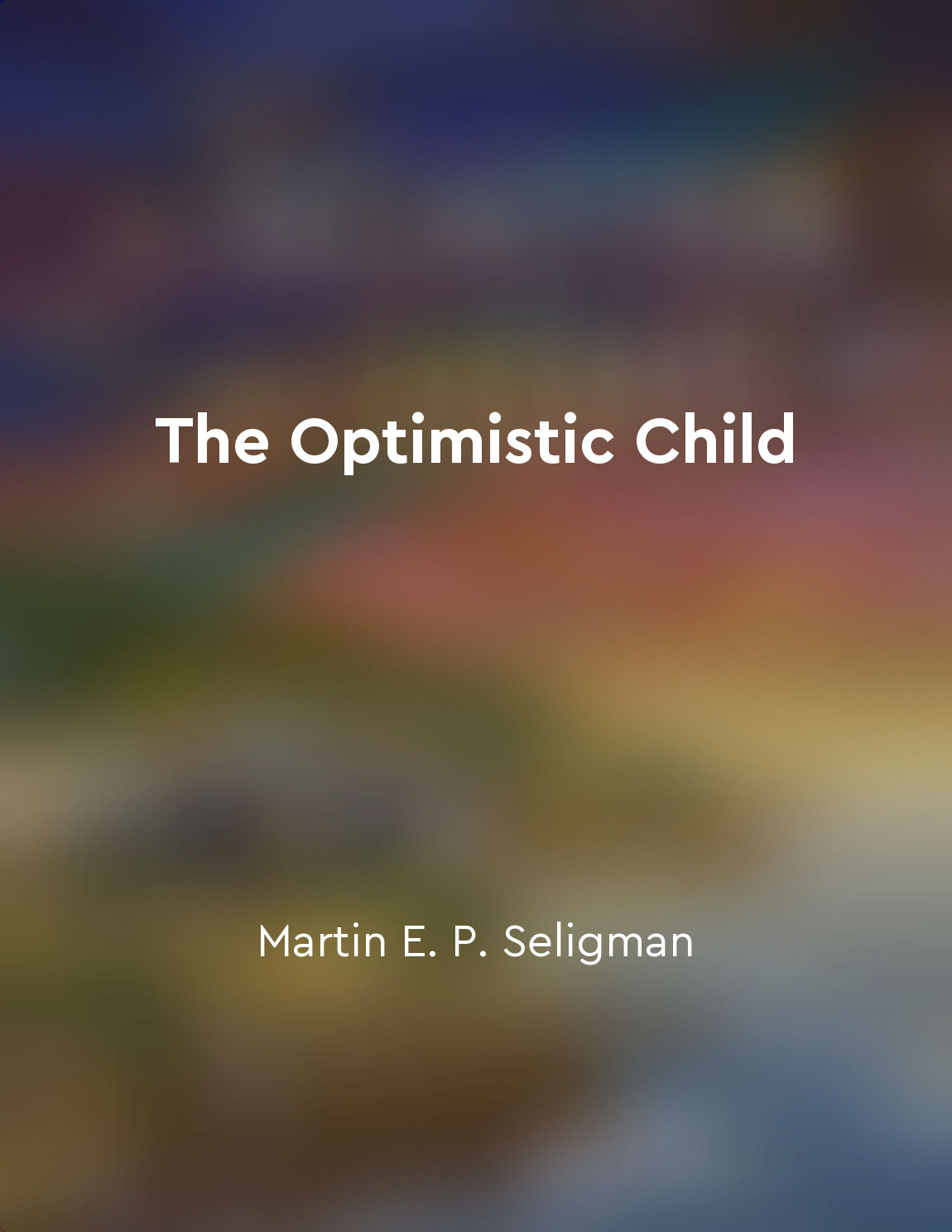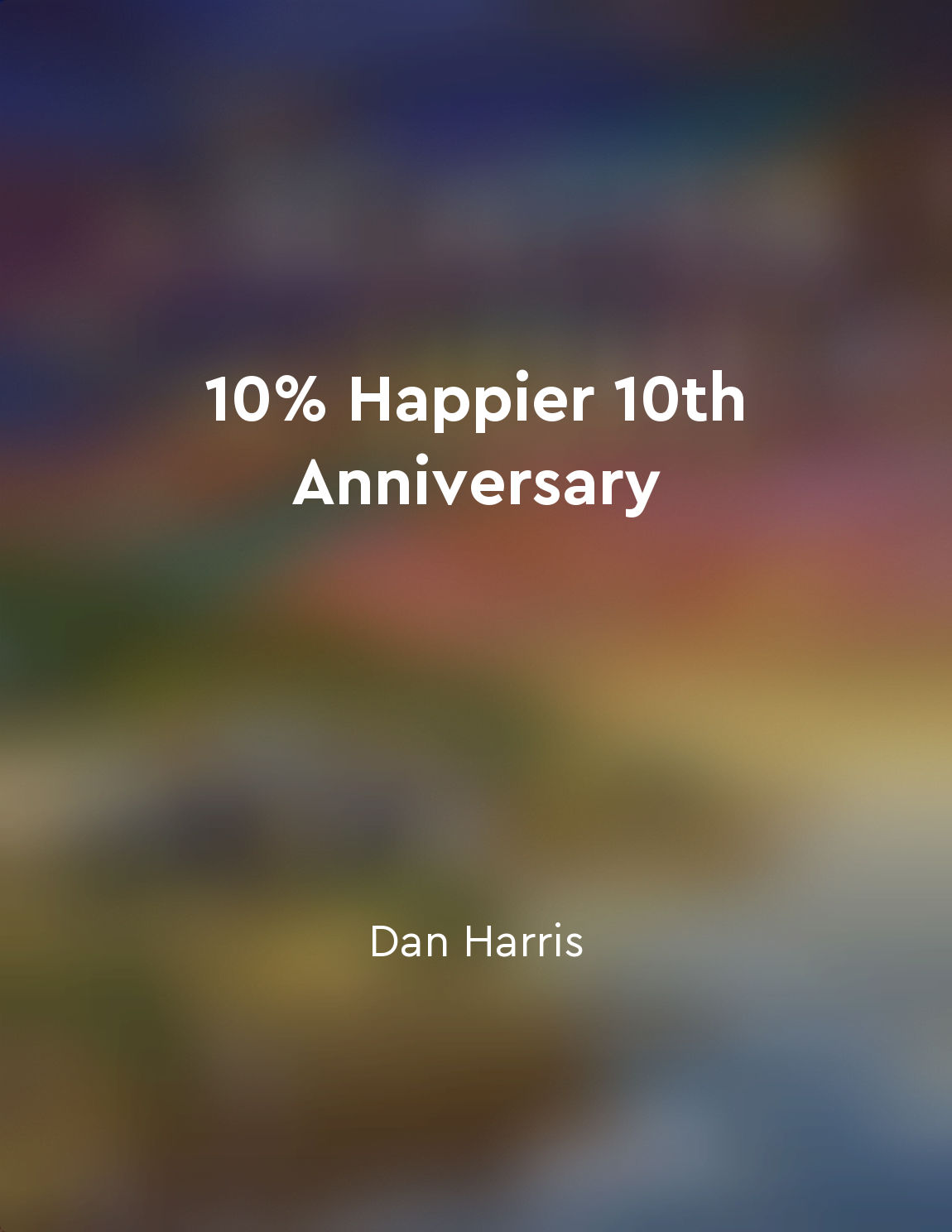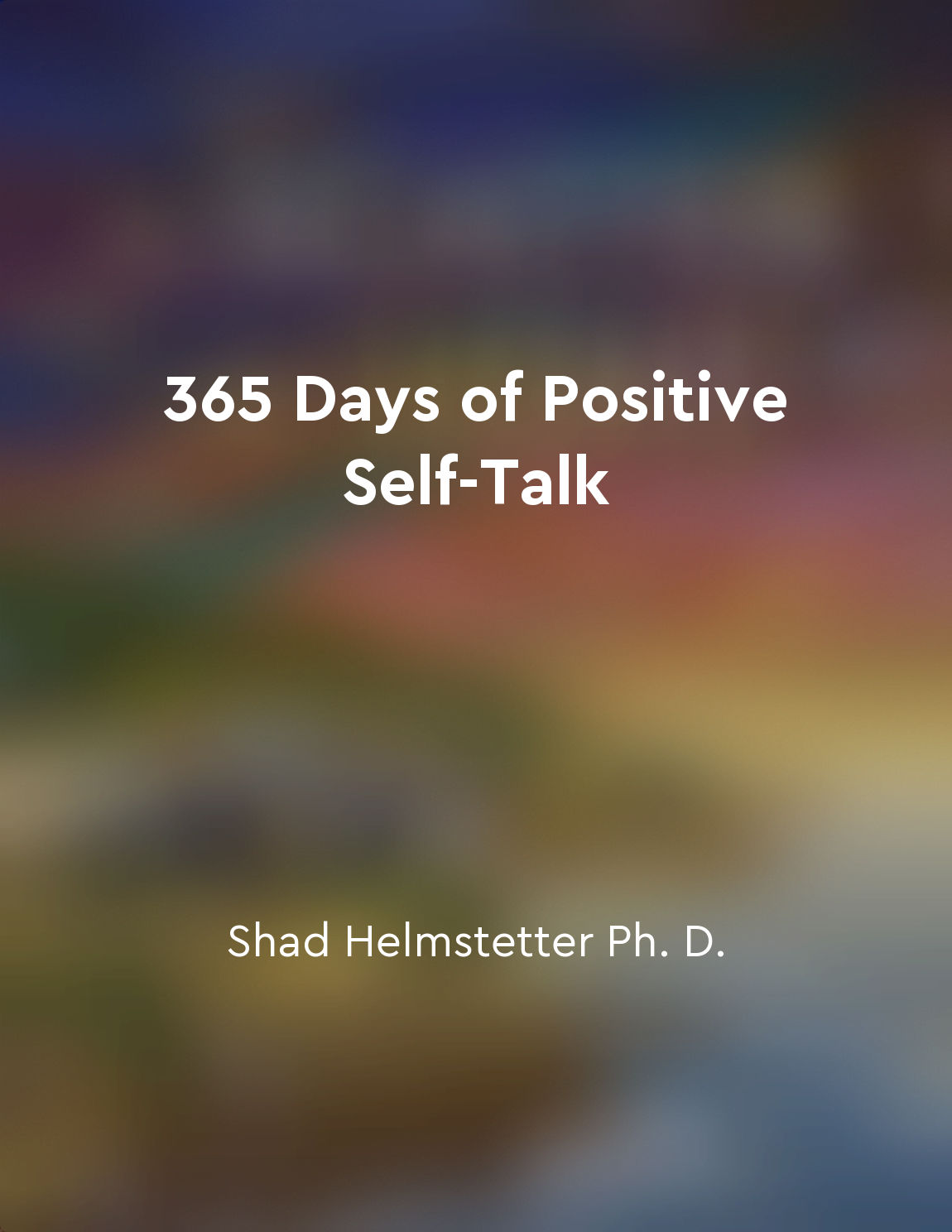Challenge negative thought patterns to reduce stress from "summary" of The Mindful Way Through Stress by Shamash Alidina
When we're faced with a stressful situation, our minds often become filled with negative thoughts that can exacerbate our feelings of anxiety and overwhelm. These negative thought patterns can create a cycle of stress that feels impossible to break free from. However, it is possible to challenge these negative thoughts and reduce their impact on our well-being. One way to challenge negative thought patterns is to practice mindfulness. Mindfulness involves paying attention to the present moment without judgment. By tuning into our thoughts and feelings in a non-reactive way, we can begin to observe the negative thought patterns that are contributing to our stress. This awareness allows us to step back from these thoughts and see them for what they truly are - just thoughts, not necessarily reflections of reality. Once we've identified our negative thought patterns, we can begin to challenge them by asking ourselves some key questions. For example, we can ask ourselves if there is any evidence to support our negative thoughts, or if there might be alternative explanations for the situation at hand. By questioning the validity of our negative thoughts, we can start to see them in a different light and reduce their power over us. In addition to questioning our negative thoughts, we can also practice cognitive restructuring. This involves replacing negative thoughts with more balanced and realistic ones. For example, if we catch ourselves thinking "I'm a failure," we can reframe this thought to "I may have made a mistake, but that doesn't define my worth as a person." By consciously changing the way we think about ourselves and our circumstances, we can cultivate a more positive mindset that is less susceptible to stress. Challenging negative thought patterns takes time and practice, but the effort is well worth it. By learning to observe, question, and reframe our negative thoughts, we can reduce the impact of stress on our lives and cultivate a greater sense of peace and well-being. So next time you find yourself caught in a cycle of negative thinking, remember that you have the power to challenge those thoughts and create a more positive mental landscape.Similar Posts
Practicing mindfulness boosts productivity
When you bring mindfulness to work, you're not just enhancing your personal well-being; you're also boosting your productivity....

Teaching children to approach challenges with a positive mindset is crucial
In helping children overcome challenges, it is essential to instill in them a positive mindset. This positive mindset serves as...
Engaging in mindfulness practices can lead to increased selfawareness
Mindfulness practices involve paying attention to the present moment without judgment. By participating in these practices, ind...

Stress management is important for brain health
Stress management is crucial for maintaining optimal brain health. When we are under stress, our bodies release cortisol, a hor...
Social interactions play a significant role in combating melancholy
Social interactions are essential in the battle against melancholy. When a person is feeling down, isolated, and disconnected f...
Practice mindfulness
To truly tap into your limitless potential, it is essential to practice mindfulness. Mindfulness is about being fully present i...

Developing a regular meditation practice can lead to lasting changes in the brain
Developing a regular meditation practice has the potential to cause structural changes in the brain. This is a groundbreaking f...
Mental stimulation promotes brain vitality
Engaging in activities that challenge your brain can have a powerful impact on your brain's health and vitality. When you stimu...

Acknowledging progress is important for motivation
When it comes to motivation, acknowledging progress plays a crucial role. It's like fuel for your inner fire, propelling you fo...
Chronic stress can lead to health issues
Chronic stress, if left unchecked, has the potential to manifest in a variety of health problems. When we experience stress ove...
